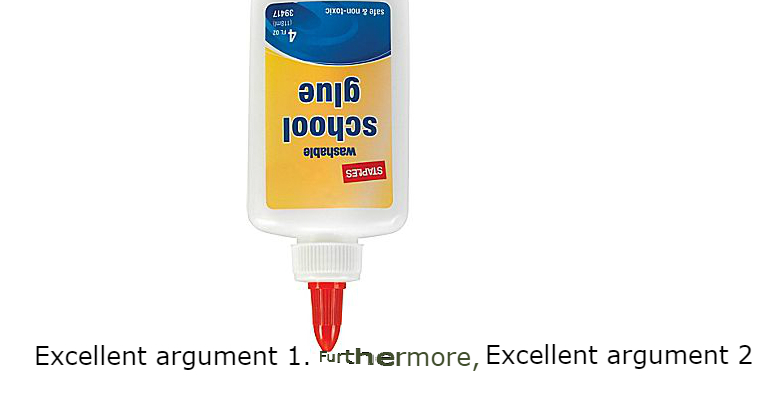Transitions (also known as connectors or linking words) make the language more logical and fluent. There are many transitions besides the well-known and overused «and», «but» and «because». Try to vary your language by including many different ones.
Don’t start sentences with AND, BUT, THEN or BECAUSE! Use these alternatives.
Those followed by a comma are followed by a comma. Those with capital letter are normally in the start of a sentence. Don’t use one of these if you have never seen it before. Google it and see how it is used in real sentences.
Norwegian |
English |
| Ett av flere argumenter/poenger | One of several arguments/points |
| For det første | First |
| First of all, | |
| Et viktig argument/poeng er… | One important argument/point is that… |
| Ett poeng er at…. /For det første | For one thing, |
| Mer av det samme | More of the same |
| For det andre, (tredje) | Second (Third) |
| Et annet poeng er at.. | Another point is that… |
| Et annet argument er at… | Another argument is that.. |
| også | also (normally not at the start of sentences) |
| Dessuten | Besides, |
| I tillegg, dessuten | Furthermore, Moreover, In addition (to this/that), (the last one used less than Norw. “I tillegg til”) |
| Motsatt | The opposite |
| Skjønt/ selv om | although, though |
| imidlertid | however, |
| Ikke desto mindre, likevel | Nevertheless, |
| På tross av… | despite…*
in spite of…* |
| På den annen side | On the other hand, At the same time |
| Når det er sagt | That being said, That said, |
| likevel | Still, yet |
| faktisk | Actually, In fact, |
| Likevel, Ikke desto mindre | Nevertheless, |
| Årsak og virkning | Cause and effect |
| Fordi | because (don’t use at the start of sentences!) |
| Så | so |
| Som et resultat av det, dermed | As a result, |
| Dermed, derfor | thus, |
| Derfor, derav | hence |
| Følgelig, derfor | Consequently, |
| Derfor, | Therefore, (used less than Norwegian “derfor”) |
| Av denne grunn, | For this reason, |
| Grunnet…, på grunn av… | because of…* due to…* |
| Siden… | Since |
| Eksempler, utbrodering | Examples, eleboration |
| For eksempel | for example, |
| For eksempel | for instance (short form: “e.g.”) |
| faktisk | in fact, |
| Mer spesifikt, nærmere bestemt | specifically |
| Ett poeng er at…. for eksempel | for one thing, |
| For det første/ andre/ tredje | First, second, third, |
| Det vil si | that is, |
| Sammenligning | Comparison |
| Også | also |
| På samme måte… | in the same manner/ way, |
| På lignende måte… | Similarly, |
| Whereas …. | Mens…. |
| Å oppsummere eller konkludere | To summarize or conclude: |
| Alt i alt, i det hele tatt | all in all, |
| For å konkludere | In conclusion, |
| Med andre ord | In other words, |
| Generelt sett | On the whole, |
| Dermed | Therefore, Hence, |
| I det hele tatt, for å oppsummere | To sum up, |
| Uansett | In any case, Anyway, |
| Poenget er at.. | The point is that..
The thing is that… |
| Tid | Time |
| Så/ da…(noe som er senere/ det neste som skjer) | Afterward, later (on), subsequently. then (normally not at the start of sentences) |
| Da (akkurat da) | That’s when |
| Senere | Eventually, later, |
| Før (dette) | Before.., prior to*, |
| Før (dette skjedde) | Before…, previously, |
| Til slutt | Finally, eventually, |
| Imens | In the meantime, meanwhile, |
| mens | While, whilst, |
Instant improvement of dull, simple, oral-like language (examples):
| But there was a problem. | However, there was a problem. There was a problem, however. |
| He was considered one of the best-looking boys in school. And he was very smart. | (…) Moreover, he was very intelligent. |
| But he managed to finish the exam anyway. | He nevertheless managed to complete the exam. |
| He seemed to be a normal person. But he was quite strange. | While he seemed to be a perfectly normal person, he nevertheless had quite a few peculiarities. |
| That’s why many people didn’t like it. | Hence, many people didn’t like it. |
| So there was a problem | Thus, there was a problem. (or hence, in other words.) |
| He was very popular with the ladies. Because he made lots of money. | He was very popular with the ladies because he made lots of money. He was very popular with the ladies due to his wealth. |
| Then it all went wrong. | That’s when it all went wrong |
| Then Keith Brown left the company. | Keith Brown subsequently left the company. |


